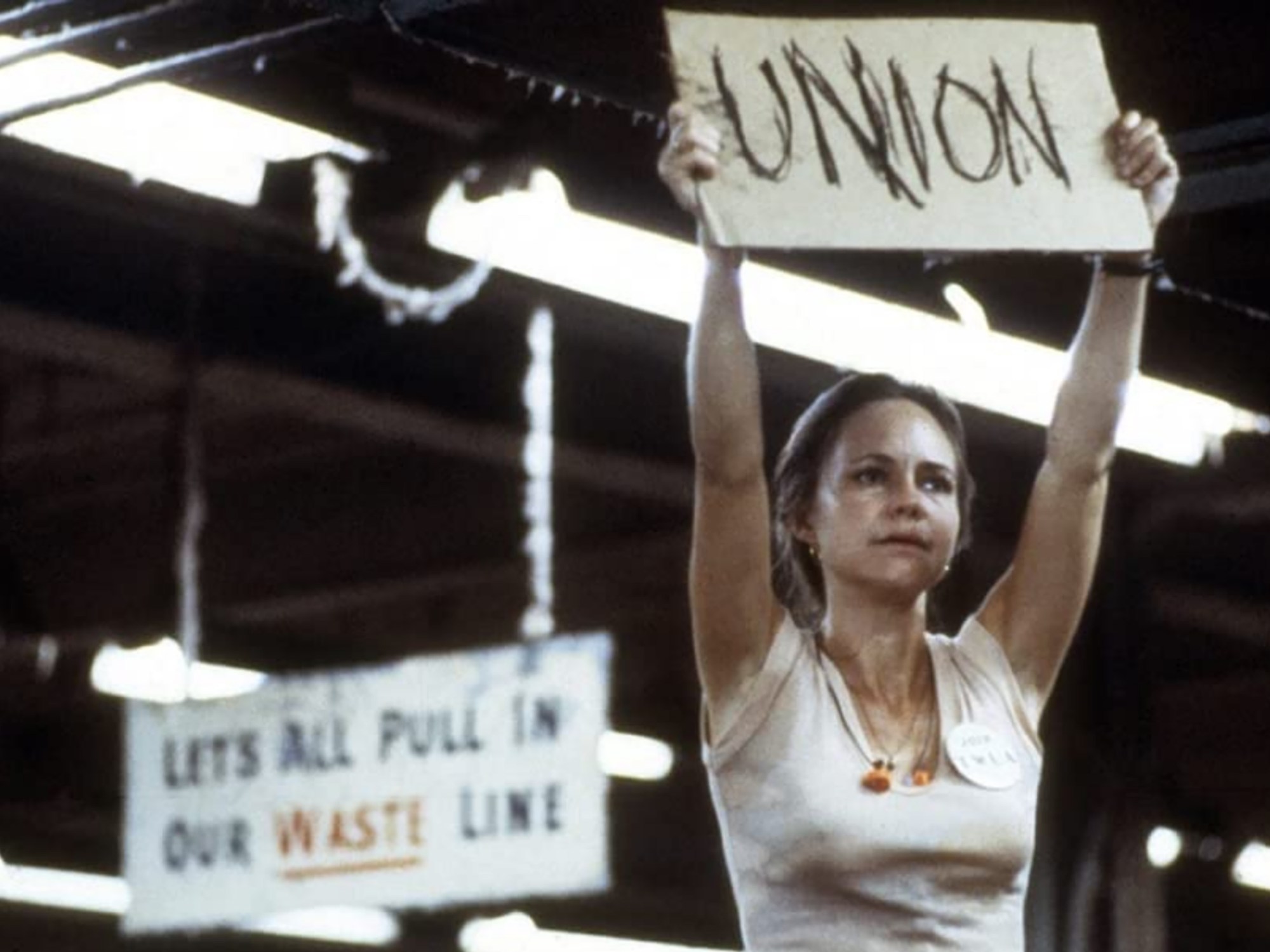
- Film
International Workers’ Day Films
What better occasion than International Workers’ Day, May 1, to celebrate films that have stirred awareness of the struggles of the working class throughout the century? At least since Fritz Lang’s Metropolis (1927), cinema has told that story, inspiring people to stand up for their rights, to unite, to become aware, and to act.
International Workers’ Day originated in the U.S. to memorialize the tragic event in 1886 known as the Haymarket Massacre which actually happened on May 4. It was the day when a peaceful protest by thousands of workers in Chicago turned into a violent confrontation between the police, workers and anarchists, ending with tens of people dead. It became the symbol of the international struggle for workers’ rights.
The Haymarket Affair created widespread hysteria against immigrants and labor leaders. Four anarchists participating in the riots were found guilty of conspiracy to commit murder after attacking police with bombs and were sentenced to execution by hanging. In 1889, an international federation of socialist groups and trade unions designated May 1 as a day of support for workers.
Five years later, U.S. President Grover Cleveland, uneasy with the socialist origins of Workers’ Day, signed legislation to make Labor Day – already held in some states on the first Monday of September – the official U.S. holiday in honor of workers. However, May 1 is universally recognized as a national holiday in countries all over the world, from Europe to Russia to Latin America to Africa (but not in the United States).
A new Italian documentary by Angelo Figorilli, The Kindest Man in the World: The Legend of Carlo Tresca, shines a light on a very important figure – sadly forgotten – in the anarchist and the U.S. labor movement. Though born in Italy, Tresca moved to America and played a pivotal role in the early 1900 workers’ strike as a union organizer. He led the Paterson, New Jersey, textile workers’ strike in 1913, at the time the biggest strike in the U.S. Tresca was eventually killed in New York in 1943 by a pro-fascist mob linked to the Italian mafioso Genovese family. This enlightening documentary will be shown in New York on May 22 at the Casa Italiana Zerilli-Marimò under the auspices of the Calandra Institute and will be presented by 90-something Dorothy Gallagher, Tresca’s first biographer.
There are several films that have become synonymous with International Workers Day such as the aforementioned German silent film Metropolis, which explores the themes of capitalism and the exploitation of the working class, set in a dystopic future where the rich and powerful live in luxurious high-rise buildings, while the working class is relegated to living underground, performing back-breaking work to keep the city running. The film is a stark reminder of the dangers of unchecked capitalism and the importance of worker solidarity.
Another film that has become a staple of International Workers’ Day is Charlie Chaplin’s Modern Times (1936), a satire of the industrial revolution and the effect it had on the working class. The film follows the misadventures of a factory worker who is struggling to keep up with the relentless pace of the assembly line. The film is a powerful critique of the dehumanizing effects of modern industry and the importance of treating workers with dignity and respect.
More recently, Ken Loach‘s The Spirit of ’45 (2013) has become a popular film to screen on International Workers’ Day. This documentary (with reenactments) explores the post-World War II Labour government in the UK which implemented a series of progressive policies aimed at creating a fairer society. The film is a tribute to the power of collective action and shows how ordinary people can come together to effect real change. Loach has often told stories about the working class struggles in his films, as in Bread and Roses (2000) with Adrien Brody, Pilar Padilla and Elpidia Carrillo, the real story of cleaners in downtown Los Angeles and their fight to unionize, launching the “Justice for Janitors” campaign.
There are many other films that explore the themes of labor and workers’ rights. For example, Martin Ritt‘s Norma Rae (1979) tells the story of a textile factory worker (Sally Field) who becomes a union activist, while Herbert J. Biberman’s Salt of the Earth (1954) depicts the struggles of Mexican American miners in New Mexico who go on strike to demand better working conditions
Worth mentioning among films that have captured class movements and anti-capitalistic struggles around the world are also the following:
Parasite, the 2019 Golden Globe (Best Foreign Film) and Oscar (Best Film) winner. The South Korean film is about a poor family that scams a rich family into hiring them for various domestic jobs. Through deceit and struggle, class warfare plays out in this film as the survival of the workers is dependent on their ignorant and wealthy bosses. A complex and unexpected twist makes commentary on the violence of poverty and the dog-eat-dog nature of capitalism through comedic horror.
The Organizer (I Compagni, 1963) is an Italian film directed by Mario Monicelli, which tells the story of a teacher-turned-organizer (played by Marcello Mastroianni) for the exploited factory workers of Turin’s textile industry. The workers organize and demand one less hour of work each day to prevent exhaustion. As their grievances go ignored, they stage a walkout. Tensions continue as the fight between management and workers continues leading to a series of suspenseful events.
Roma (2018), the Golden Globes and Oscar Best Foreign Film winner, written and directed by Mexican Alfonso Curón, is about the life of an indigenous live-in housekeeper, Cleo, played by Yalitza Aparicio. The film is a slow and captivating reflection of traumas, race and class in Mexico City.

